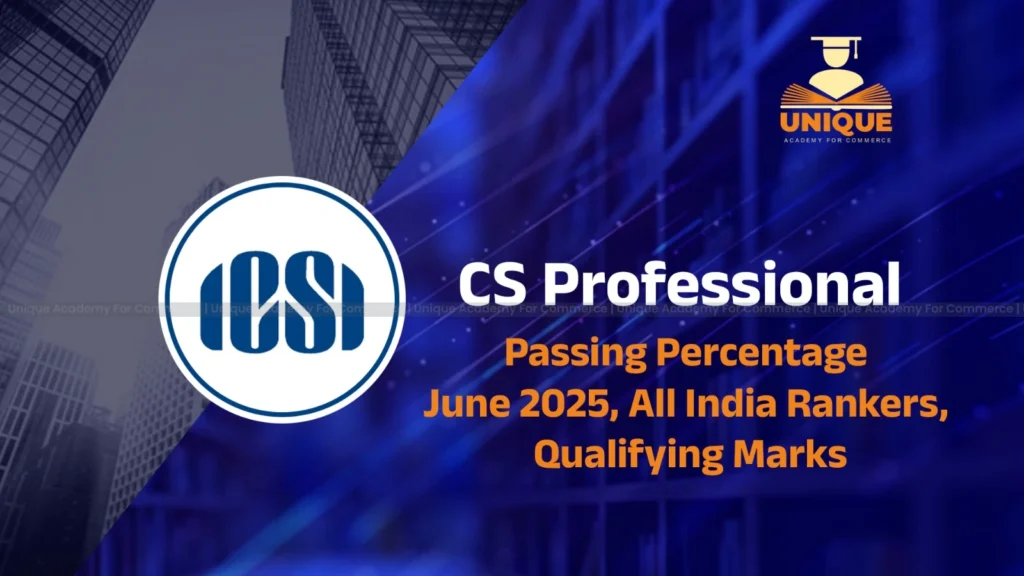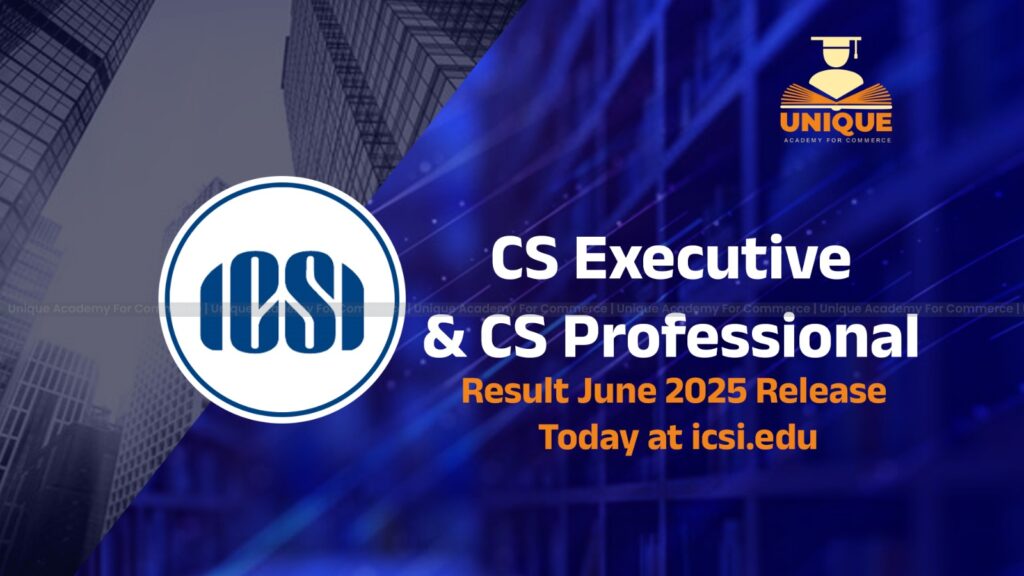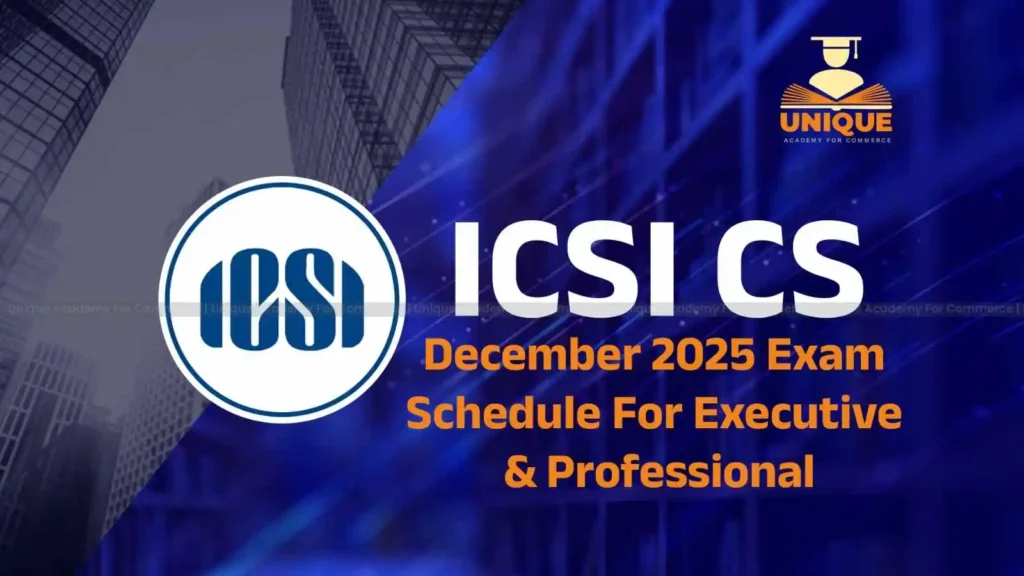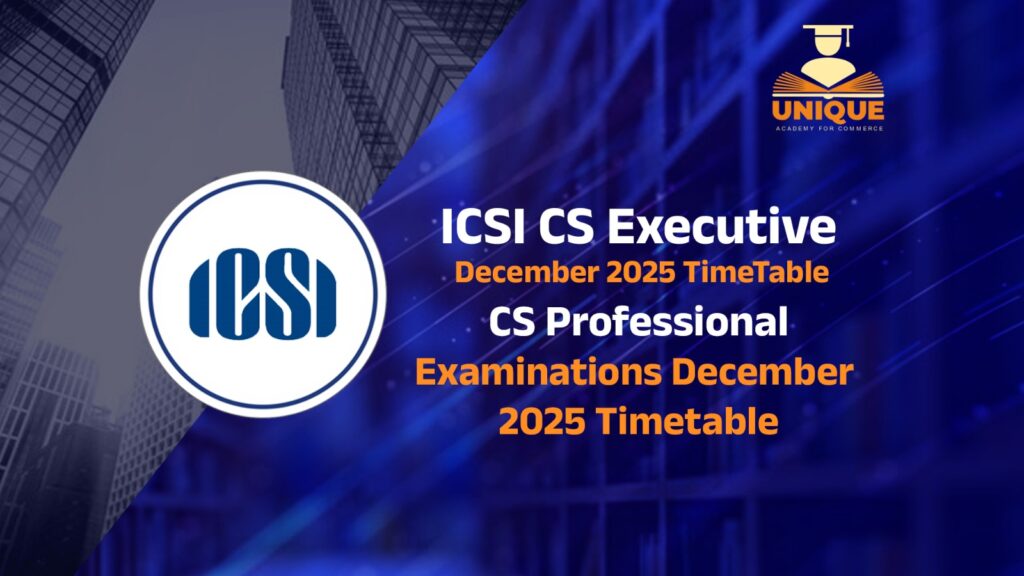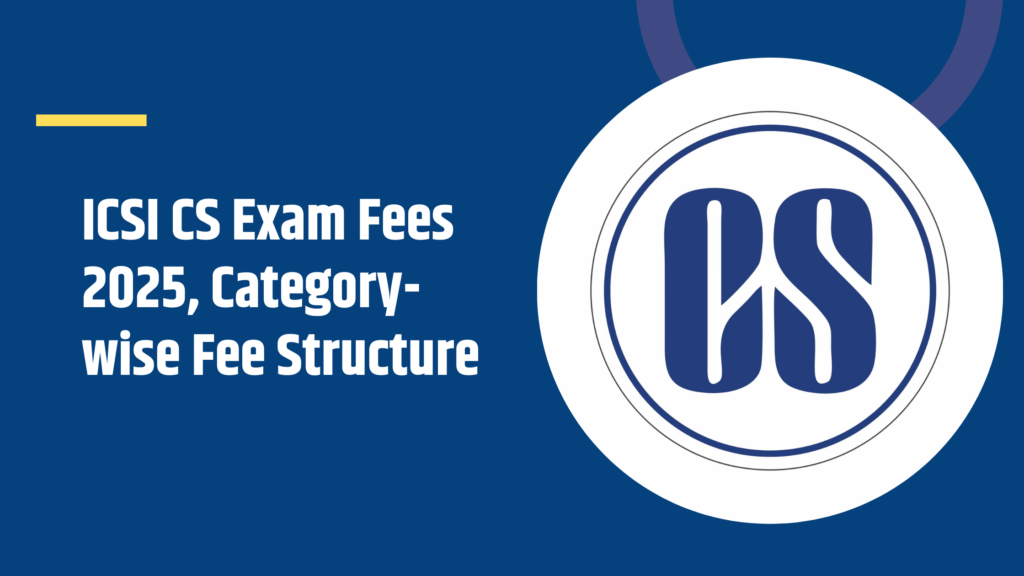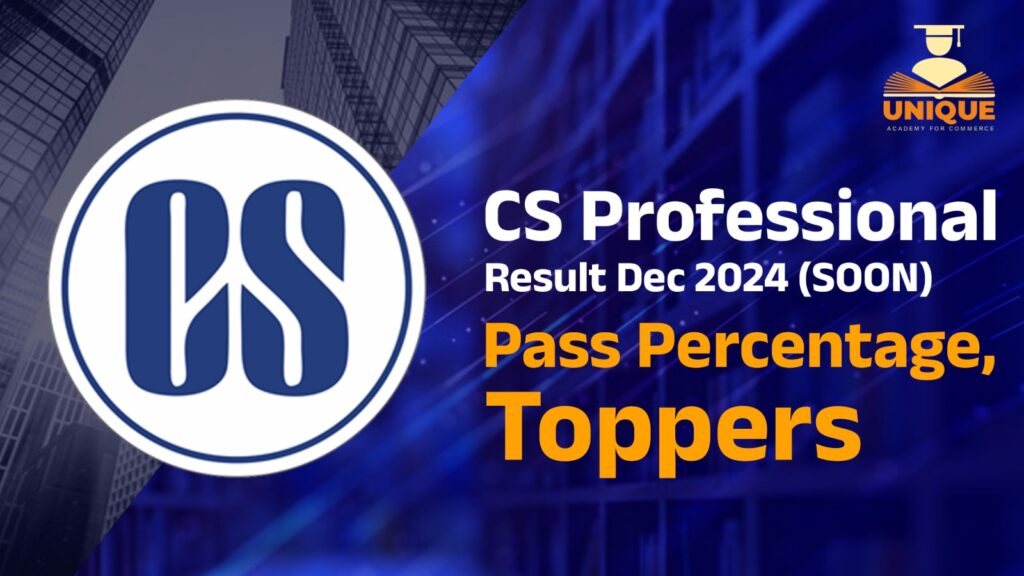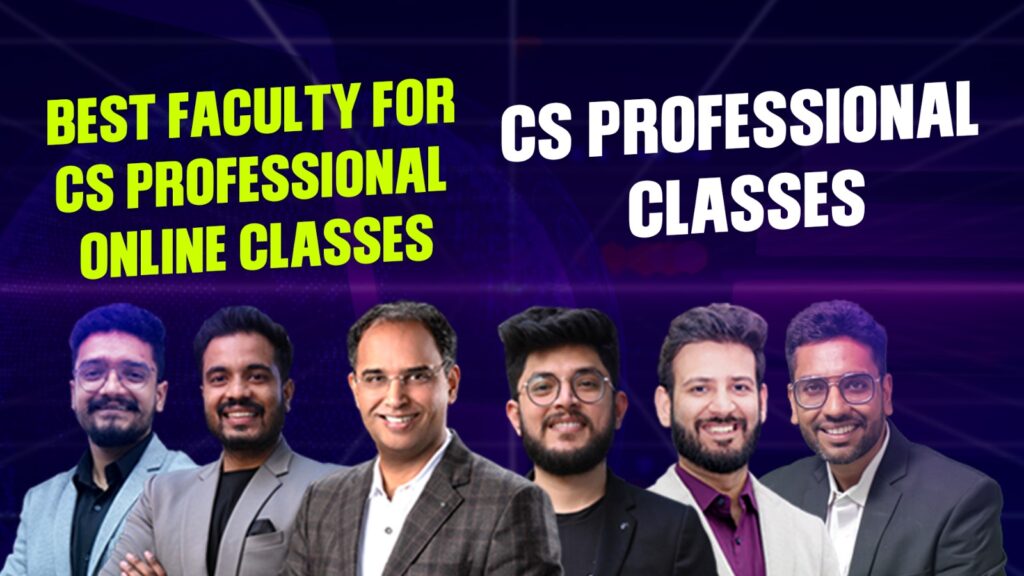Guidance for CS Professional Elective Subject | Which Elective subject to select in CS Professional?

The Company Secretary (CS) Professional program is the last part of the CS course that is regulated by the Institute of Company Secretaries of India (ICSI). It prepares the learners with higher knowledge and skills in different fields of corporate law, governance, and management.
The new syllabus is intended to address the current needs of the market and offer a solid foundation for the students’ growth.
The option of subjects is one of the most important features of the CS Professional Elective. These electives enable students to focus on certain fields of their choice in relation to their career paths.
In this blog, we will discuss the CS Professional Elective Subject and give recommendations on how to choose the right one depending on the chosen field.
CS Professional Elective Subject Elective 1 Options

1. Corporate Social Responsibility (CSR) & Social Governance
Part I: Corporate Social Responsibility (50 Marks)
Part II: Social Governance (50 Marks)
Overview: This subject deals with the concepts, laws, and policies concerning CSR and social governance. It is suitable for students who want to work with organizations that uphold the right standards of business and those that are involved in the improvement of the society.
2. CS Professional Elective Internal and Forensic Audit
Part I: Internal Audit (60 Marks)
Part II: Forensic Audit (40 Marks)
Overview: This subject deals with the fundamental concepts of internal auditing and goes further into the forensic auditing, which is the identification of fraud and prevention of the same. It benefits students who are interested in pursuing careers in auditing and compliance positions.
3. CS Professional Elective Intellectual Property Rights – Law & Practice (100 Marks)

Overview: This subject offers a wealth of information on IPR and how they can be implemented in practice. This is suitable for students who wish to specialize in the legal side of intellectual property, as it provides a specialized yet lucrative field of study.
4. CS Professional Elective AI & Data Protection Laws, Cyber Laws & Data Analytics – Laws & Practice (100 Marks)
Overview: This subject combines the elements of artificial intelligence, data analysis, and cyber security with law. It is ideal for students who are interested in technology-related positions and who would like to know more about new fields in corporate law.
CS Professional Elective Subject 2 Options
1. Arbitration, Mediation & Conciliation (100 Marks)
Part I: Arbitration and Conciliation carries 70 Marks.
Part II: Mediation (30 Marks)
Overview: This subject focuses on the processes of ADR and provides information on arbitration, conciliation, and mediation. It is ideal for those who want to be ADR specialists or corporate negotiators.
2. GST & Corporate Tax Planning (100 Marks)
Part I: Goods and Services Tax (GST) (70 Marks)
Part II: Corporate Tax Planning (30 Marks)
Overview: This subject deals with the complexity of GST law and the strategies of corporate tax planning. It is ideal for students who wish to pursue a career in taxation or any company’s financial department.
3. Labour Laws & Practice (100 Marks)
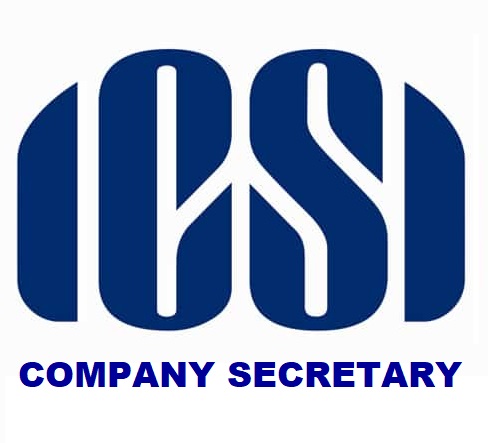
Overview: This subject provides a detailed understanding of labor laws and how they are implemented in organizations. It is suitable for those who would like to focus on employment law, compliance, and human resource management.
4. Banking & Insurance – Laws & Practice (100 Marks)
Part I: Banking Laws (50 Marks)
Part II: Insurance Laws (50 Marks)
Overview: This subject is designed to offer a dual specialization in the legal aspects of banking and insurance sectors. It is ideal for learners who wish to practice in the financial sector or in the legal departments of banks and other insurance firms.
5. Insolvency and Bankruptcy – Law & Practice (100 Marks)
Overview: This subject is concerned with the legal frameworks and procedures concerning insolvency and bankruptcy. It is designed for the students who want to focus on insolvency procedures, corporate restructuring, or debt collection.
Tips on Selecting the Correct CS Professional Elective Subject
The selection of the right optional subject can go a long way in determining the type of job one is going to get.
Here are some tips to help you decide:
1. Align with Career Goals: Choose a topic that aligns with your desired career path. For instance, if you wish to focus on corporate taxation, then choose GST & Corporate Tax Planning.
2. Assess Your Strengths: Select a topic that is close to your heart and in which you are proficient. If you have a special interest in law and legal profession, then courses such as Arbitration, Mediation & Conciliation or Intellectual Property Rights may suit you.
3. Industry Demand: Take into account the current trends in the industry and the demand for particular competencies. AI and Cyber Security are some of the fields that are rapidly expanding, thus making Artificial Intelligence, Data Analytics, and Cyber Security a perfect combination.
4. Scope for Growth: Assess the sustainability of the field for future development. For instance, Forensic Audit is becoming popular with increasing corporate fraud incidences and offers a steady career.
5. Consult with Professionals: Consult with people who have been through this process before, such as your mentors, other professionals, or seniors. Their opinions can be of great help.
CS Professional Elective Subject Switchover from Old Syllabus (2017) to New Syllabus (2022):
Paper wise Exemption Details for Professional Programme
| Professional Programme | |
| Existing Syllabus (2017) | Paper wise Exemption Under New Syllabus (2022) |
| Module 1 | |
| Governance, Risk Management, Compliances and Ethics | Group 1, Paper 1 – Environmental, Social and Governance (ESG) – Principles & Practice |
| Advanced Tax Laws | No Exemption |
| Drafting, Pleadings and Appearances | Group 1, Paper 2 – Drafting, Pleadings and Appearances |
| Module 2 | |
| Secretarial Audit, Compliance Management and Due Diligence | Group 1, Paper 3 – Compliance Management, Audit & Due Diligence |
| Corporate Restructuring, Insolvency, Liquidation & Winding-up | Group 2, Paper 6 – Corporate Restructuring, Valuation and Insolvency |
| Resolution of Corporate Disputes, Non-Compliances & Remedies | No Exemption |
| Module 3 | |
| Corporate Funding & Listings in Stock Exchanges | Group 2, Paper 5 – Strategic Management and Corporate Finance |
| Multidisciplinary Case Studies | No Exemption |
| Elective Paper | |
| Banking – Law & Practice | Elective 2, Paper 7.4 – Banking & Insurance – Laws & Practice |
| Insurance– Law & Practice | Elective 2, Paper 7.4 – Banking & Insurance – Laws & Practice |
| Intellectual Property Rights– Laws and Practices | Elective 1, Paper 4.3 – Intellectual Property Rights – Law & Practice |
| Forensic Audit | Elective 1, Paper 4.2 – Internal and Forensic Audit |
| Direct Tax Law & Practice | No Exemption |
| Labour Laws & Practice | Elective 2, Paper 7.3 – Labour Laws & Practice |
| Valuations & Business Modelling | No Exemption |
| Insolvency – Law and Practice | Elective 2, Paper 7.5 – Insolvency and Bankruptcy Law & Practice |
Final thoughts
The new syllabus for the CS Professional elective program provides a list of subjects which are meant to provide you with specific knowledge and skills.
If you choose an optional subject wisely according to your career interests, skills, and the trends in the market, then you can easily get a good job in the competitive area of corporate governance and law.
Remember that the right choice can open the path to a successful and interesting work as a Company Secretary.
CS Professional Course | What is the Professional Course of CS?






